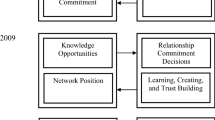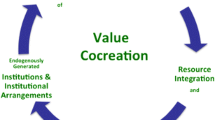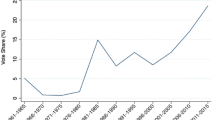Abstract
Friedrich A. von Hayek influenced many areas of inquiry including economics, psychology and political theory. This article will offer one possible interpretation of the ethical foundation of Hayek’s political and social contributions to libertarianism and free market capitalism by analyzing several of his important non-economic publications, primarily The Road to Serfdom, The Fatal Conceit, The Constitution of Liberty and Law, Legislation and Liberty. While Hayek did not offer a particular ethical foundation for free market capitalism, he argued consistently that free markets are liberating and, for the markets to be truly free and for individuals to participate freely in markets, they should be subject to little control. Beyond some very basic principles, such as the protection of private property, that enable the free market to function properly, individuals are both free to and required to determine their own ethical compass. The central question, then, is what are the ethical principles that underlie Hayek’s view of the successful organization and operation of a free market? If formal rules and regulations must be kept to a minimum, then ethical behavior is an individual choice as well as an important foundation for the self-regulating free market. This article will argue that one possible ethical foundation underlying Hayek’s libertarian justification for free market capitalism are Friedrich Nietzsche’s “will to power” and noble/slave ethics. This article will rely primarily on Nietzsche’s On The Genealogy of Morals, Beyond Good and Evil, Zarathustra, and the Will to Power.
Similar content being viewed by others
References
Allison D. B. 2001, Reading the New Nietzsche. Rowman and Littlefield, Oxford, England
Berkowitz P. 1995, Nietzsche: The Ethics of and Immoralist. Harvard University Press, Cambridge, MA
Caldwell B. 2004, Hayek’s Challenge: An Intellectual Biography of F. A. Hayek. The University of Chicago Press, Chicago, IL
Hayek F. A. 1948, Individualism and Economic Order. The University of Chicago Press, Chicago, IL
Hayek F. A. 1960, The Constitution of Liberty. The University of Chicago Press, Chicago, IL
Hayek F. A. 1973, Law, Legislation and Liberty: Vol. 1, Rules of Order. The University of Chicago Press, Chicago, IL
Hayek F. A. 1976, Law, Legislation and Liberty: Vol. 2, The Mirage of Social Justice. The University of Chicago Press, Chicago, IL
Hayek F. A. 1978, Law Legislation and Liberty: Vol. 3, The Political Order of a Free People. The University of Chicago Press, Chicago, IL
Hayek F. A. 1988, The Fatal Conceit: The Errors of Socialism. The University of Chicago Press, Chicago, IL
Hayek F. A. 1994, The Road to Serfdom. The University of Chicago Press, Chicago, IL
Horwitz, S.: 2001, ‹From Smith to Menger to Hayek’, Independent Review 6, 81–97
Kaufman W. 1974, Nietzsche: Philosopher, Psychologist, Antichrist, 4 ed. Princeton University Press, Princeton, NJ
Kirzner I. M. 1997, Entrepreneurial Discovery and the Competitive Market Process: An Austrian Approach. Journal of Economic Literature, XXXV, 60–85
Nietzsche, F.: 1954, Thus Spoke Zarathustra, W. Kaufmann, Trans. (Penguin, New York)
Nietzsche, F.: 1968, The Will to Power, W. Kaufmann and R. J. Hollingdale, Trans. (Vintage Press, New York)
Nietzsche, F.: 1989a, Beyond Good and Evil, W. Kaufmann, Trans. (Vintage Books, New York)
Nietzsche, F.: 1989b, On the Genealogy of Morals and Ecce Homo, W. Kaufmann and R. J. Hollingdale, Trans. (Vintage Books, New York)
Nietzsche, F.: 2000, Basic Writings of Nietzsche, W. Kaufman, Trans. (Modern Library, New York)
Seung T. K. 2005, Nietzsche’s Epic of the Soul: Thus Spoke Zarathustra. Lexington Books, New York
Vanberg V. 1991, Spontaneous Market Order and Social Rules: A Critical Examination of F.A. Hayek’s Theory of Cultural Evolution. In W. J. Cunningham, R. N. Wood (eds.), Friedrich Hayek, Critical Assessments, Vol. IV. Routledge, London, England
Author information
Authors and Affiliations
Corresponding author
Rights and permissions
About this article
Cite this article
Romar, E.J. Noble Markets: The Noble/Slave Ethic in Hayek’s Free Market Capitalism. J Bus Ethics 85, 57–66 (2009). https://doi.org/10.1007/s10551-008-9748-6
Received:
Accepted:
Published:
Issue Date:
DOI: https://doi.org/10.1007/s10551-008-9748-6




